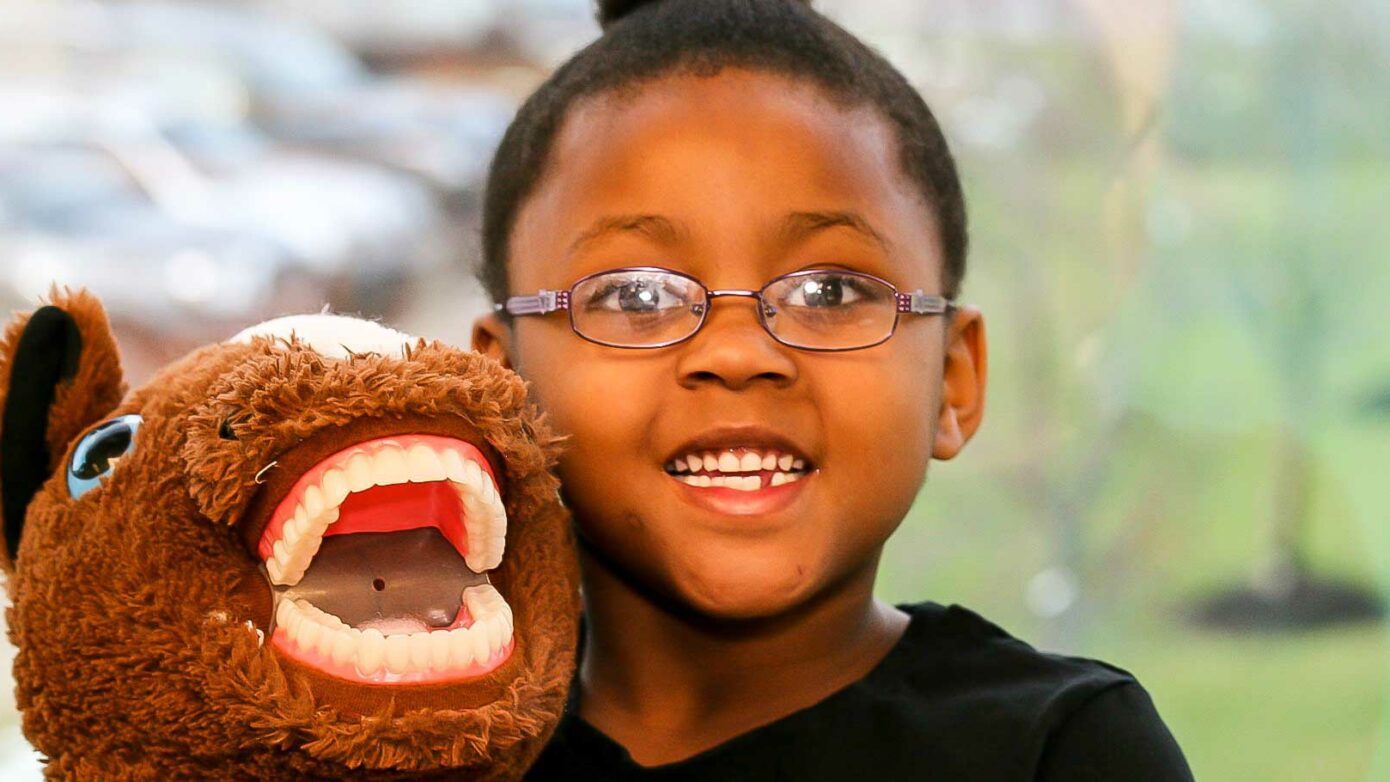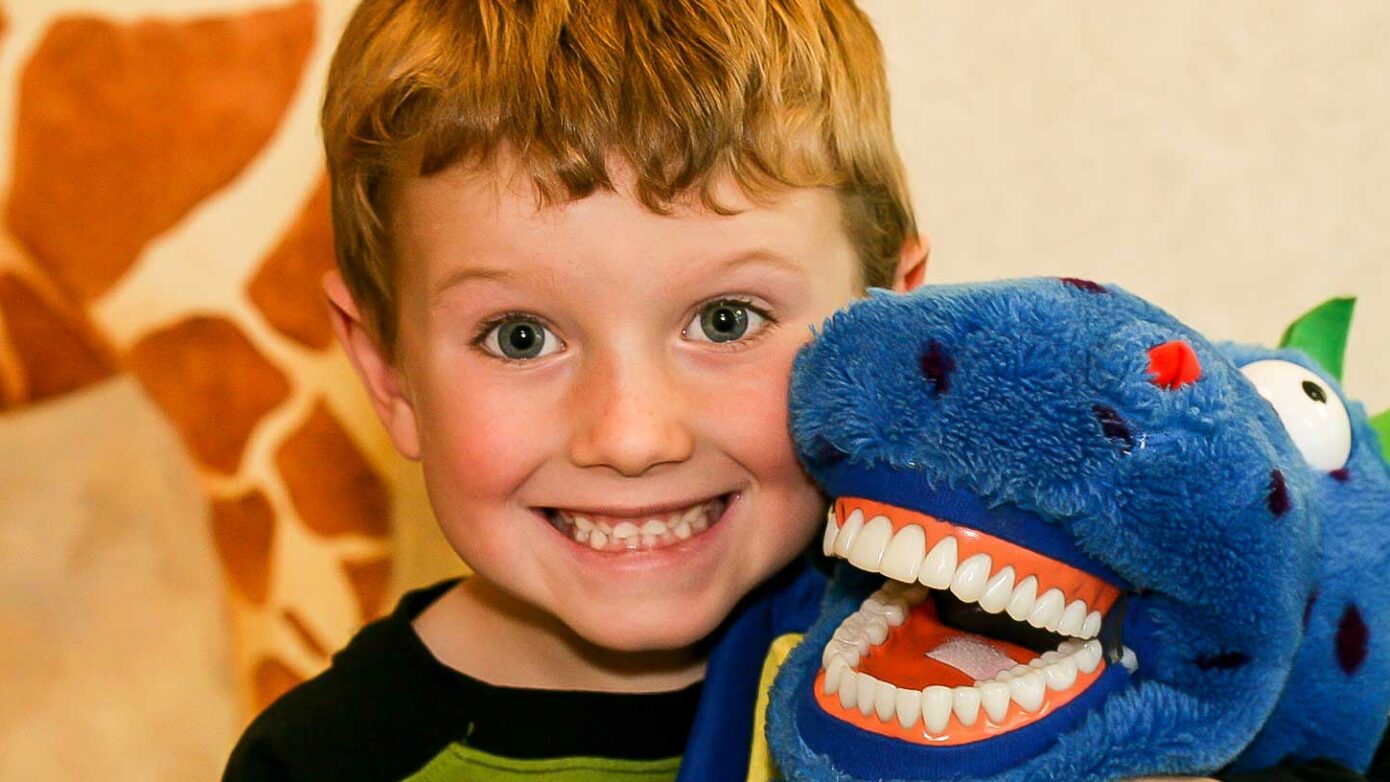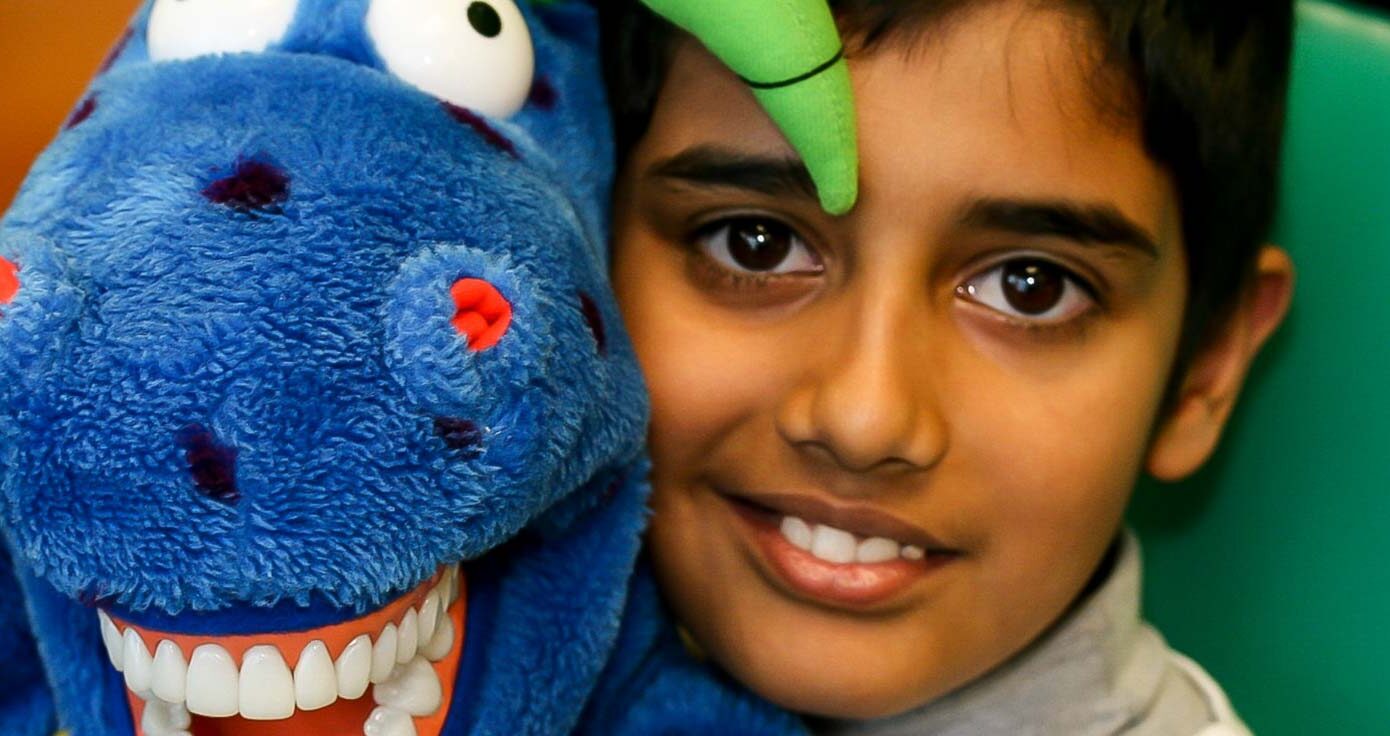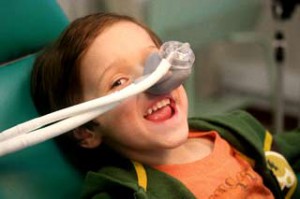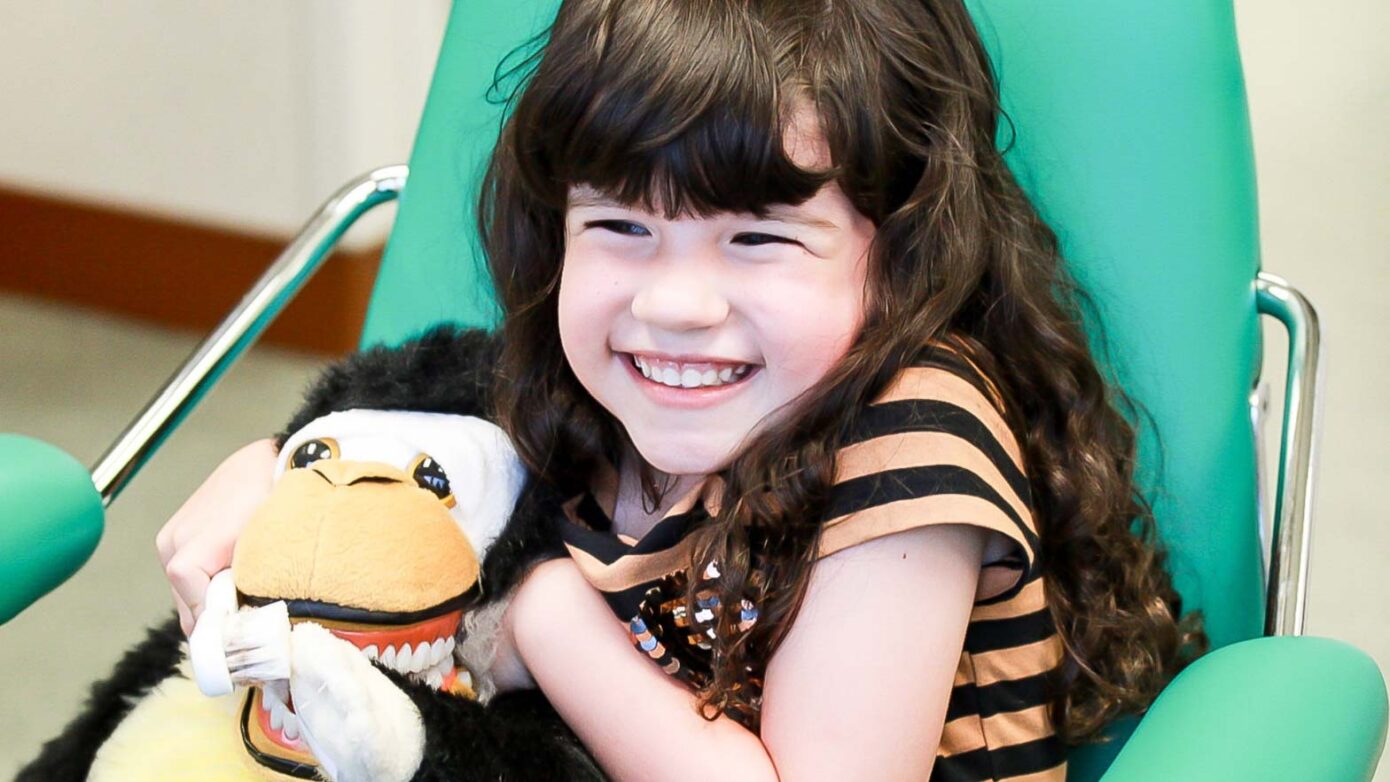What happens during the first visit?
Your child’s initial visit will be a consult with one of the pediatric dentists. If there is a specific problem that you are concerned about, we will address it. A plan will be made so treatment can start and we can take care of any problems.
If your child is well and healthy, and you are simply coming to our office to establish a dental home for your child, we will give you all the information you need to raise cavity free kids. Every effort will be made to provide a polishing/cleaning and the appropriate preventative measure on your first visit so that you can jump quickly into a preventive routine at our office.
How should I prepare?
Your child should be told that they are going to the dentist. Rest assured that we try our best to make every visit enjoyable and playful. The less to-do about the visit the better. Tell your child “the doctor will count your teeth”, and that it will be fun. All too often parents try to prepare their children by saying “you have to be brave” and “it won’t hurt”. Children are very adept at reading body language and tone, and will read between the lines. Try not to project your anxiety onto your child. Keep the explanation simple, and if you are unsure of what the first visit will be like, tell them they will have fun counting teeth. Read about your first visit…
If you unsure what to say to your child about their first visit, keep it simple. “We’re going to go to the see the dentist. You can look at the animals and they will count your teeth.”
When should your child see a dentist?
The American Academy of Pediatric Dentistry and the Canadian Academy of Pediatric Dentistry, as well as the American Academy of Pediatrics agree. Your child should be seen by a dentist by 12 months of age, or within 6 months of the first teeth erupting.
The idea is to establish a DENTAL HOME, or place where you can take your child in the case of a dental emergency other than the emergency room. Why so young? In health care, and especially in the case of children’s oral health, prevention is the key. By learning what not to do and starting with good habits right when the first teeth erupt, you can can prevent problems that are difficult and expensive to treat once they start. Young children often fall, and trauma to the primary teeth occurs in one third of all children by the age of 6! Cavities, or DENTAL CARIES, is the most common childhood disease, many times more common than asthma…..and it is 100% PREVENTABLE.

DON’T FORGET: We are here to help. You can call us to ask any questions you may have before making an appointment.
Dr. Mike


